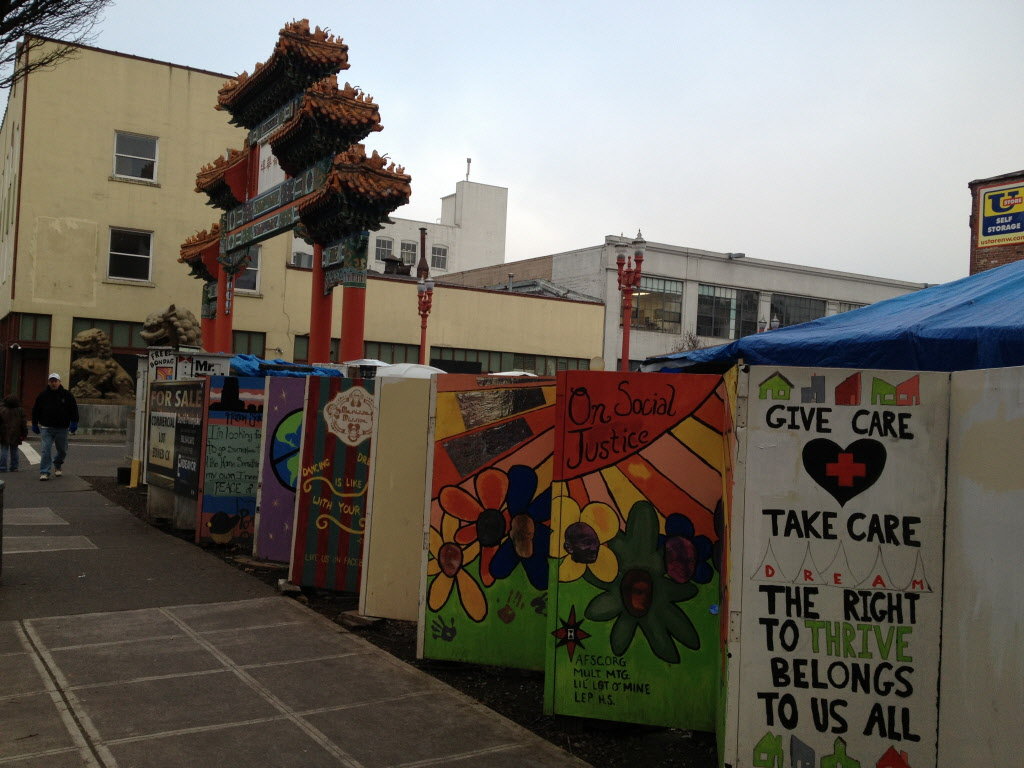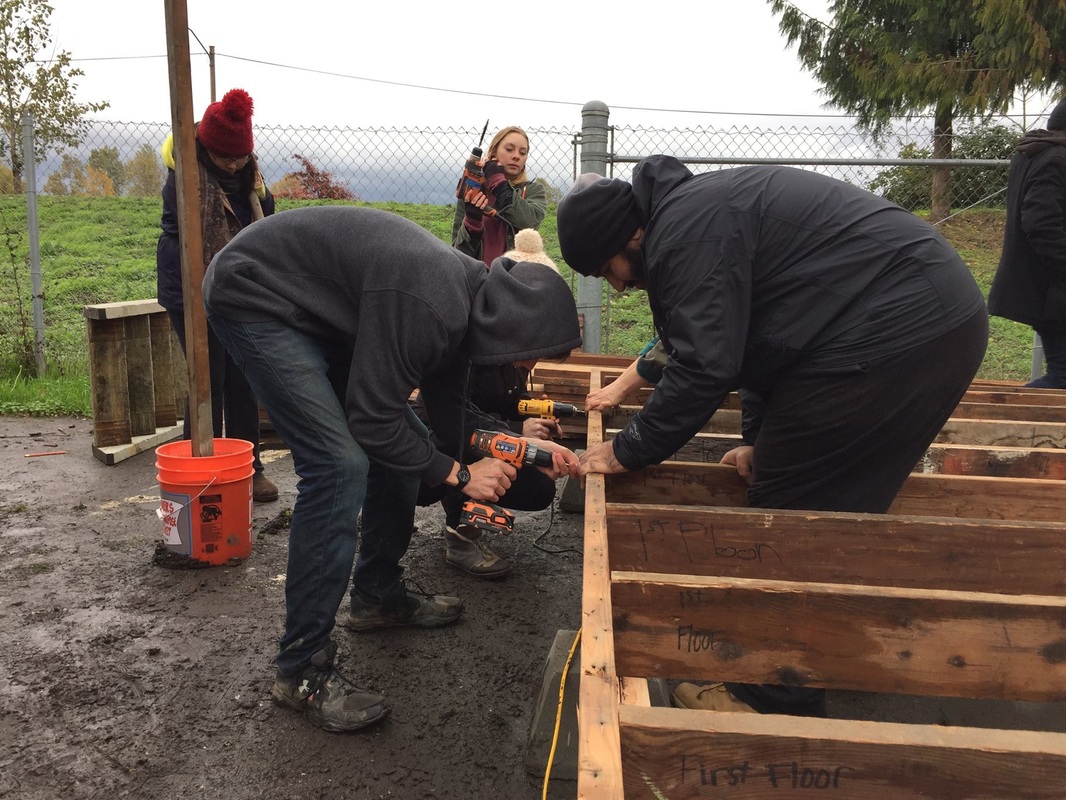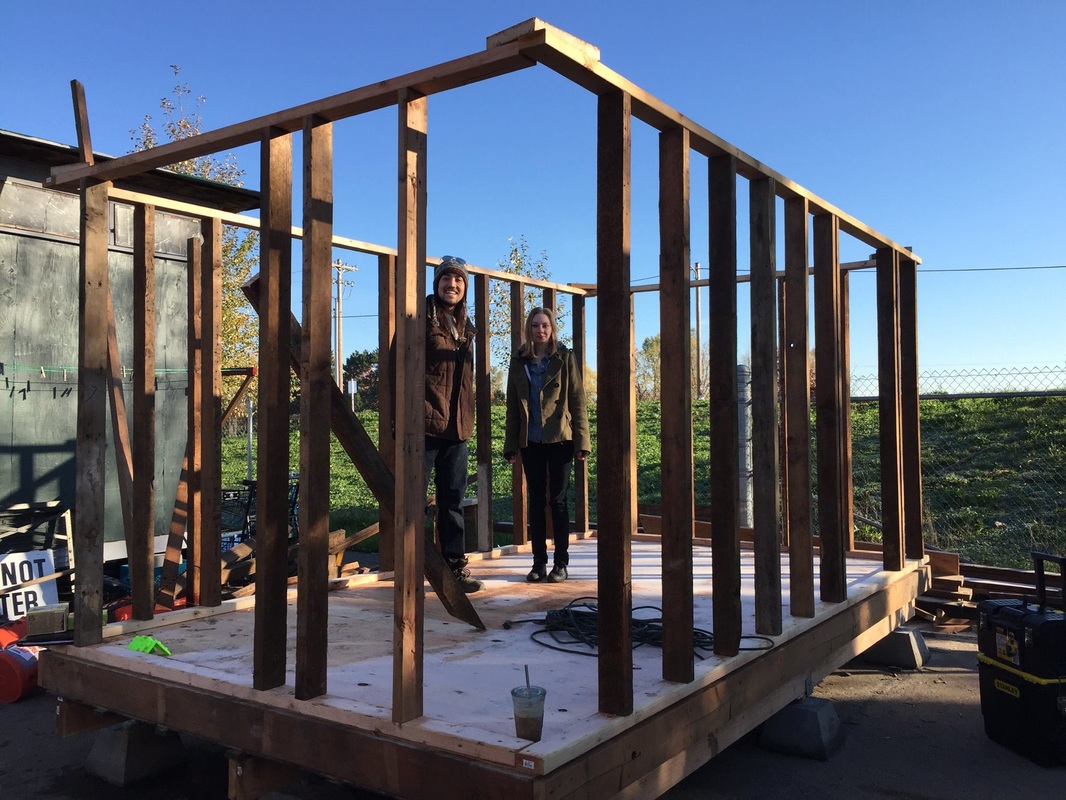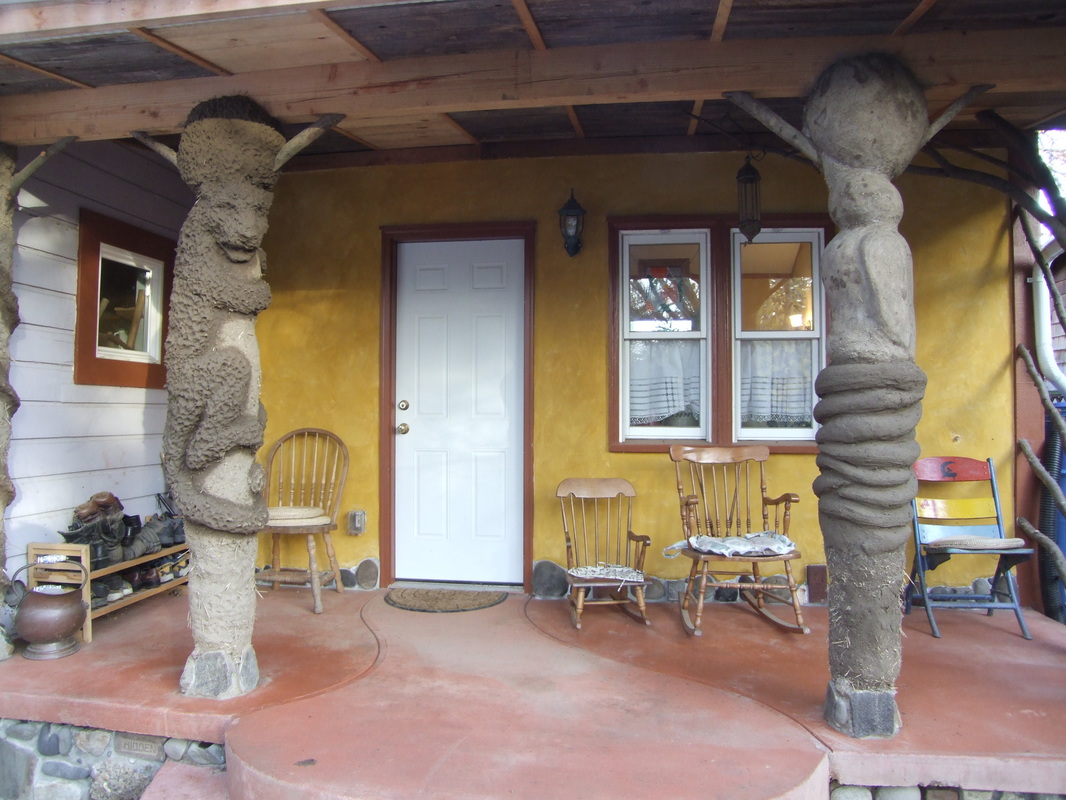You may have heard that the City is making plans to move the Right 2 Dream Too homeless camp from inner Northwest Portland to a more permanent site in industrial Southeast. You may not know that they are consulting our own Mark Lakeman for the site plan. Mark’s experience in establishing and developing Dignity Village has made him—and his collaborator Tim Merrill of Merrill Architecture—the choice architects of homeless people in town.
Right 2 Dream Too (R2D2) was established in 2011 on West Burnside both to provide a safe place to get a good night’s rest and to protest the City’s anti-camping rules. Rather than be raided by police as single people camping under bridges, this group of organized homeless citizens has managed to engage in negotiations with City government over the last four years. They have now secured an $850,000 budget for developing a more permanent site to camp, shower, do laundry, cook, and store their belongings. Forty people will reside in the camp and will admit up to sixty guests per night to sleep and use all of the facilities. In addition to the health and psychological benefits of meeting these basic needs, for some people, a place to rest and clean up can help them go out and earn money to improve their situation.
The site plan for this complete village infrastructure will be reviewed by City Council on February 4th, after which development of the new site can begin.
Dignity Village and R2D2 have shown that living collectively has significant benefits, and homeless people and their advocates are taking notice. A new camp, known as Hazelnut Grove, has recently sprung up near Overlook Park in North Portland. This camp features a food garden secured by OSALT to help people provide some of their own nutrition. At the Planet Repair Institute, an affiliate of Communitecture, permaculture students are preparing to design a sustainable site plan to guide campers in their development.
We may be nowhere close to solving the problems of homelessness in our community. However, every person sleeping on the street counts. and every shelter we create makes a difference. At the same time, homeless people who form villages and stand up for their rights have lessons to teach the rest of us. If people without any material wealth at all can be cooperative neighbors and create ecologically-responsible settlements from garbage, what excuse do we have not to form the most beautiful neighborhoods in the world?





 RSS Feed
RSS Feed

